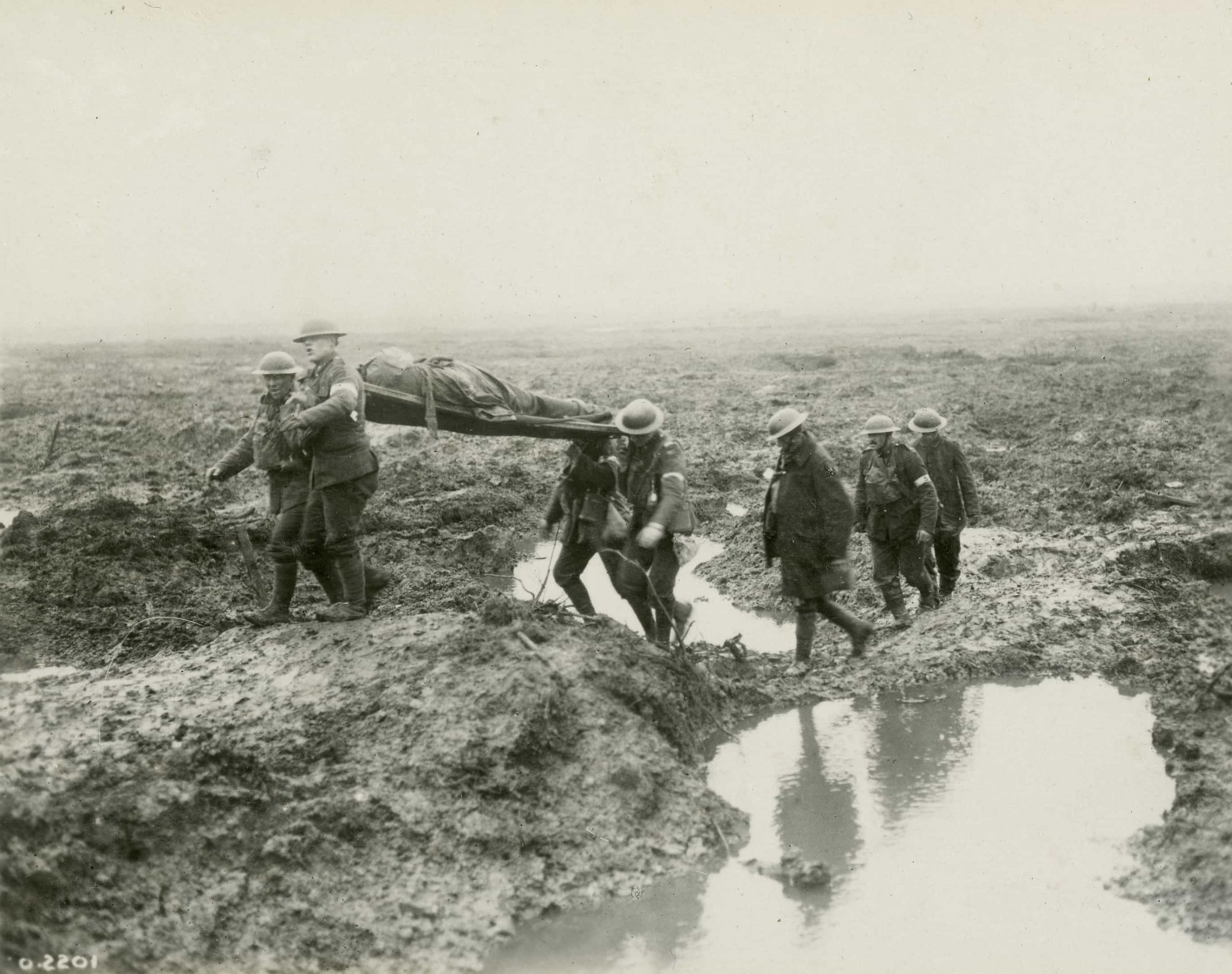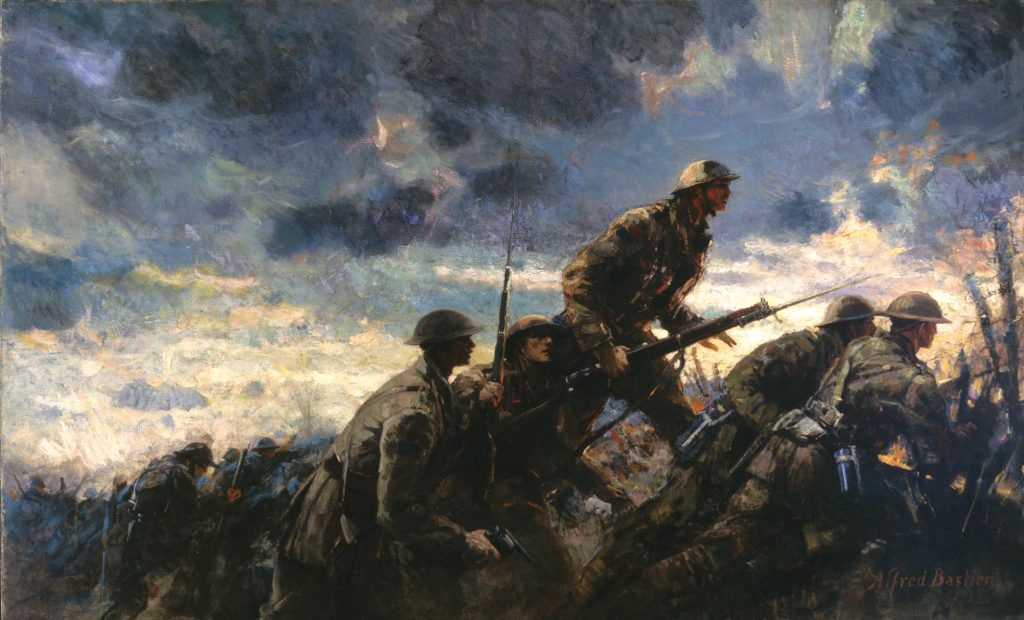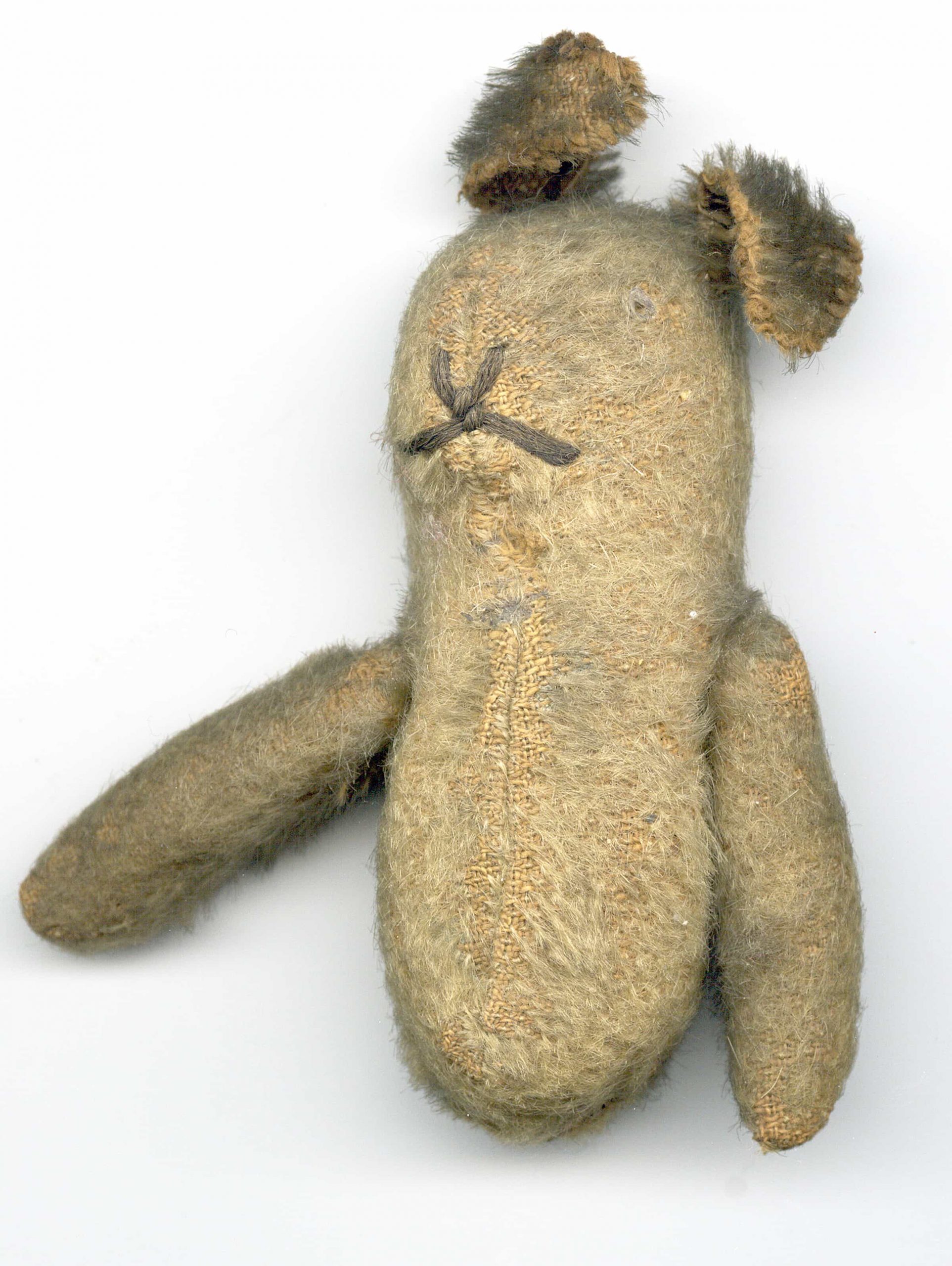
4 August 1914–11 November 1918
Historical Overview
After years of tension and rivalry, Europe’s Great Powers went to war in 1914. What started as a localized conflict grew into a global war. Canada’s contribution to the First World War led to growing autonomy and international recognition, but at great cost. The war was one of the most far-reaching and traumatic events in Canadian history.
About the War
Canada’s military forces fought primarily on the Western Front. The armies of citizen-soldiers used mass-produced weapons and ammunition in battles that lasted weeks or months and killed or wounded hundreds of thousands.
Canada entered the war on the Allied side, alongside France, Belgium, Russia and Britain. They fought the Central Powers: Germany, Austria-Hungary and the Ottoman Empire.
Over 620,000 Canadian men enlisted or were conscripted, along with 2,800 women who served as nurses. The Canadian Corps, the nation’s primary fighting force, fought in key battles in Flanders, on the Somme, at Vimy, and during the Hundred Days campaign. It achieved significant victories but at a terrible cost in lives: more than 61,000 Canadians were killed before Germany was defeated.
The First World War ended in a complete Allied victory but an unstable peace. This contributed to festering anger and grief, along with setting the conditions that led to fascist dictators and another world war. Canada was forever changed by the experience, stepping out on the world stage and being recognized for its massive contributions, but also deeply divided over the conscription crisis. The country was never the same.
Remembering the War
Canada emerged from the First World War a proud, victorious nation with a new standing in the world. It was also grieving and divided, forever changed by the war’s unprecedented exertions and horrific costs.
Over 620,000 Canadians served with the Canadian Expeditionary Force during the war, and approximately 424,000 served overseas. Of these some 61,000 Canadians were killed during the war or in its immediate aftermath. Countless other veterans lived with physical scars and mental wounds.
The war ended on 11 November 1918 at 11 a.m. Today, Canadians honour the country’s sacrifice with two minutes of silence every 11 November at that time.
Banner photo:
Stretcher-bearers carry a wounded Canadian soldier to a medical post.
George Metcalf Archival Collection
Canadian War Museum 19930013-464


